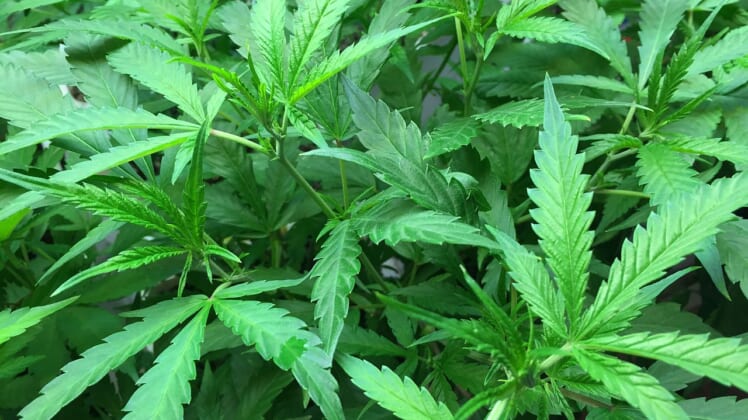
Medical marijuana has been a hot debate in the last year or two. While there’s good argument on both sides, you can understand the controversy without widespread definitive research available. However, you’ve probably noticed that the wind is changing. Many experts are attesting to the potential benefits of one main ingredient called cannabidiol (CBD), including experts with the World Health Organization.
In an investigative research effort, the World Health Organization studied the safety and uses of CBD. They published their findings in November.
Following that investigation, the Expert Committee on Drug Dependence recently decided against placing CBD under international restriction and pledged to continue research on the topic in May 2018. So far, the organization has not found CBD to be harmful or addictive, striking a chord that many are still skeptical to hear.
The report states that “in experimental models of abuse liability, CBD appears to have little effect on conditioned place preference or intracranial self-stimulation. . . . In humans, CBD exhibits no effects indicative of any abuse or dependence potential.”
That summary might sound like good news to recreational users, but there is a catch. The study covers the effects of pure CBD, not the mix-and-match concoctions of street vendors. It’s worth noting that the authors found “no approved marketed pure CBD medicinal products, although two are in development.”
Still, given the lack of research performed nationally by the United States, WHO’s study is certainly interesting.
What Exactly Is Cannabidiol?
By now, you may have already made up your mind about cannabidiol. You should, however, make sure that you understand all the facts. Many people wrongly believe that taking CBD is the same as abusing marijuana. While the two drugs are closely related, they don’t share all the same features.
Cannabidiol is actually one of 80 different cannabinoids that make up the marijuana plant. While it’s true that CBD is one of the main ingredients in the drug, it’s not the one that causes its well-known highs and addictions.
In fact, according to the WHO report, CBD does not cause a high or have the potential for addiction and dependence. The drug seems to be well-tolerated in the patients who take it, but it may interfere and cause reactions with other current medications. Many reported side effects are mild, though, including dry mouth, low blood pressure, dizziness and drowsiness.
Breakthrough Drug Beats Heart Disease
What CBD Is Good For
As of right now, a few studies have made it to advanced stages of research, but the United States limits it greatly because of CBD’s Schedule 1 classification. It is considered to have a high potential for drug abuse and dependence, tying up researchers’ ability for study without special approval.
Even so, preliminary studies have found CBD to potentially benefit several conditions.
- Mental disorders
While few if any large clinical trials have observed CBD’s effects on mental disorders, small studies have shown promise.
For instance, in the first randomized, double blind study published in 2012, researchers gave over 40 schizophrenic patients either CBD or another effective antipsychotic drug. Both helped improve the patients similarly, but CBD proved to have a much better side effect profile.
In a more recent trial of 88 participants with schizophrenic-related disorders, researchers have found CBD superior to the control with little to no side effects. This recent trial, however, has not yet been peer-reviewed. Both studies are referred to in this review.
- Epilepsy
The use of CBD for epilepsy has far more research available. In one encouraging study cited by the WHO report, researchers gave CBD or a placebo to 120 children with Dravet syndrome. The syndrome is a highly dangerous form of epilepsy that resists medication.
During the trial, researchers found that the median number of epileptic seizures decreased monthly from about 12 episodes to 6. The placebo group decreased from about 15 to 14 episodes.
On the other hand, several participants did withdraw because of adverse events in the CBD group, including abnormal liver test results, diarrhea, loss of appetite, vomiting and fatigue.
Also, other small trials have found less improvement, and some none at all. More studies need to confirm which cases of epilepsy might benefit from the drug.
- Parkinson’s disease
Next, small case studies indicate CBD’s possible benefit for symptoms of Parkinson’s. While it may or may not help the disease itself, Parkinson’s patients often have difficulty sleeping, including insomnia followed by daytime sleepiness or sleep attacks, excessive dreaming and nightmares and restless leg syndrome.
One case study of four patients revealed that taking CBD may help reduce some of these symptoms, improving quality of life for Parkinson’s patients.
- Multiple Sclerosis
Finally, several studies have found benefits for multiple sclerosis, particularly with an oral spray of nabiximols. In one observational study of over 250 patients in Germany, researchers found that over 70 percent reported relief from their muscle spasms after just 1 month. After 3 months, 55 percent were still using the spray and the patients’ mean NRS score (the numerical pain rating scale) decreased by 25 percent.
Because of marijuana’s highly addictive nature, you can understand why the use of cannabidiol remains just as controversial as medical marijuana. Still, experts agree that CBD doesn’t show the same effects and may help a variety of conditions if studied more extensively. Only time and the determination of researchers will show how beneficial CBD really is.
